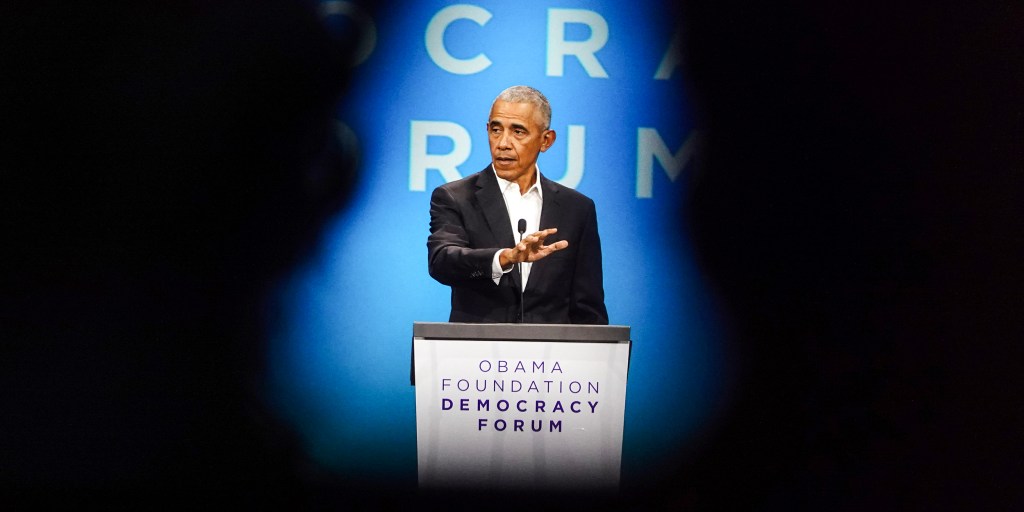CHICAGO- A group of specialists evaluating the expanding reach of AI cautioned recently that more efforts are needed to restrict AI’s potential for harm or further marginalization of people of color.
The observation was raised during a panel discussion at the Obama Foundation’s Democracy Forum, an annual event where intellectuals exchange ideas on fostering a fair society. This year’s conference focused on deliberating the advancements and challenges of AI.
Alondra Nelson, a social science professor at the Institute for Advanced Study, highlighted that AI systems can be flawed and even perpetuate bias during the session titled “Assessing AI and Human Progress.”
There is existing evidence that these tools can detect, magnify, and perpetuate biases in everyday life—critical issues that are currently being addressed in society, as per Nelson.
A study by AI researchers in 2021 revealed that large language models can propagate racism and various forms of discrimination. Training data for language models, which may embody inherent biases like racism, sexism, and ableism, often disproportionately represent individuals in privileged positions.
Moreover, several Black individuals have reported instances in the past year where facial recognition technology, powered by AI, misidentified them, leading to severe repercussions. In one case, 28-year-old Randall Reid from Georgia was mistakenly detained and incarcerated in 2022 after Louisiana authorities utilized facial recognition technology to link him to three robberies. A judge in Jefferson Parish withdrew the warrant upon noting natural discrepancies, such as moles on his face.
In a separate incident in February, Porcha Woodruff sued the city of Detroit for wrongful imprisonment. Woodruff alleged that authorities used a flawed facial recognition match from a photo lineup linking her to theft and carjacking. While eight months pregnant at the time, Woodruff was arrested and later released on a $100,000 bond. The case was eventually dismissed due to “insufficient evidence,” according to the complaint.
Black individuals have expressed concerns about such systems in surveys. A Pew Research Center study from April found that 20% of Black respondents who perceive racial discrimination and bias in hiring as significant issues believe that AI could exacerbate these problems, compared to about 10% of White, Asian, and Latino adults.
In his keynote speech at the forum, former President Barack Obama commended the recent executive order on AI signed by the Biden administration, which established broad national oversight and investment in the technology. Obama acknowledged the associated risks while offering guidance on the matter.
Hany Farid, a professor at the University of California, Berkeley, emphasized during the panel that predictive AI in recruitment, the criminal justice system, and financial institutions may inadvertently perpetuate human biases.
Farid explained that predictive AI relies on historical data, which, if biased—as it often is—against people of color, women, and the LGBTQ community, will lead to biased AI outcomes. He cautioned against deploying these systems without a full understanding, as it would essentially replicate past biases.
Nelson has been advocating for inclusive AI development within the White House Office of Science and Technology Policy for the past two years. Her team crafted the Blueprint for an AI Bill of Rights under the Biden administration, incorporating inputs from journalists, policymakers, scholars, and various experts to safeguard individuals from the perils posed by automated systems.
Nelson emphasized the importance of ongoing dialogues about AI worldwide and expressed hope that society would capitalize on these discussions.
Nelson remarked, “You can have an opinion about this incredibly powerful tool that is poised to bring about significant social change even if you’re not a calculus expert.” “As a community, we must deliberate on how we want to utilize these tools moving forward and shape our future, a responsibility that falls on all of us to undertake.”






